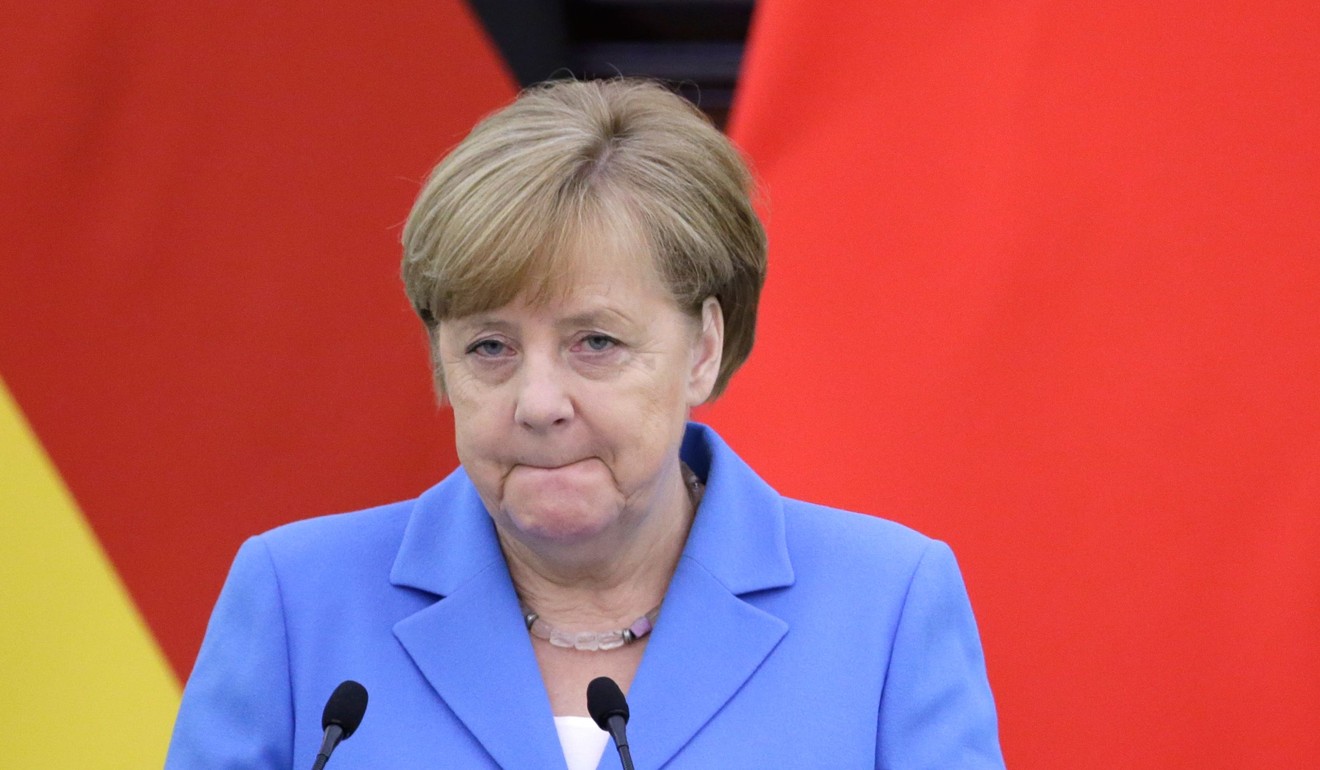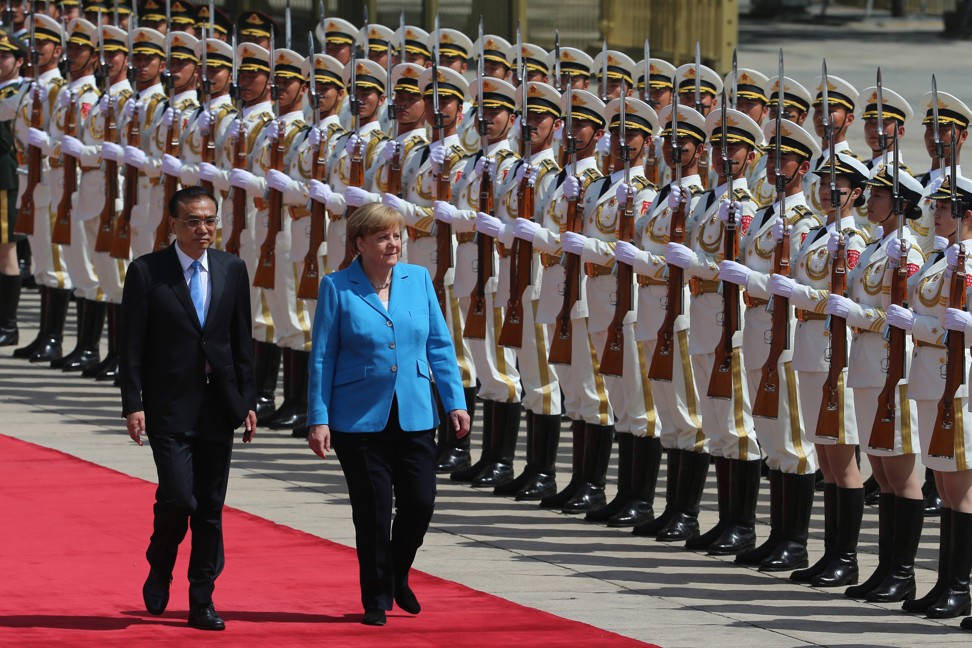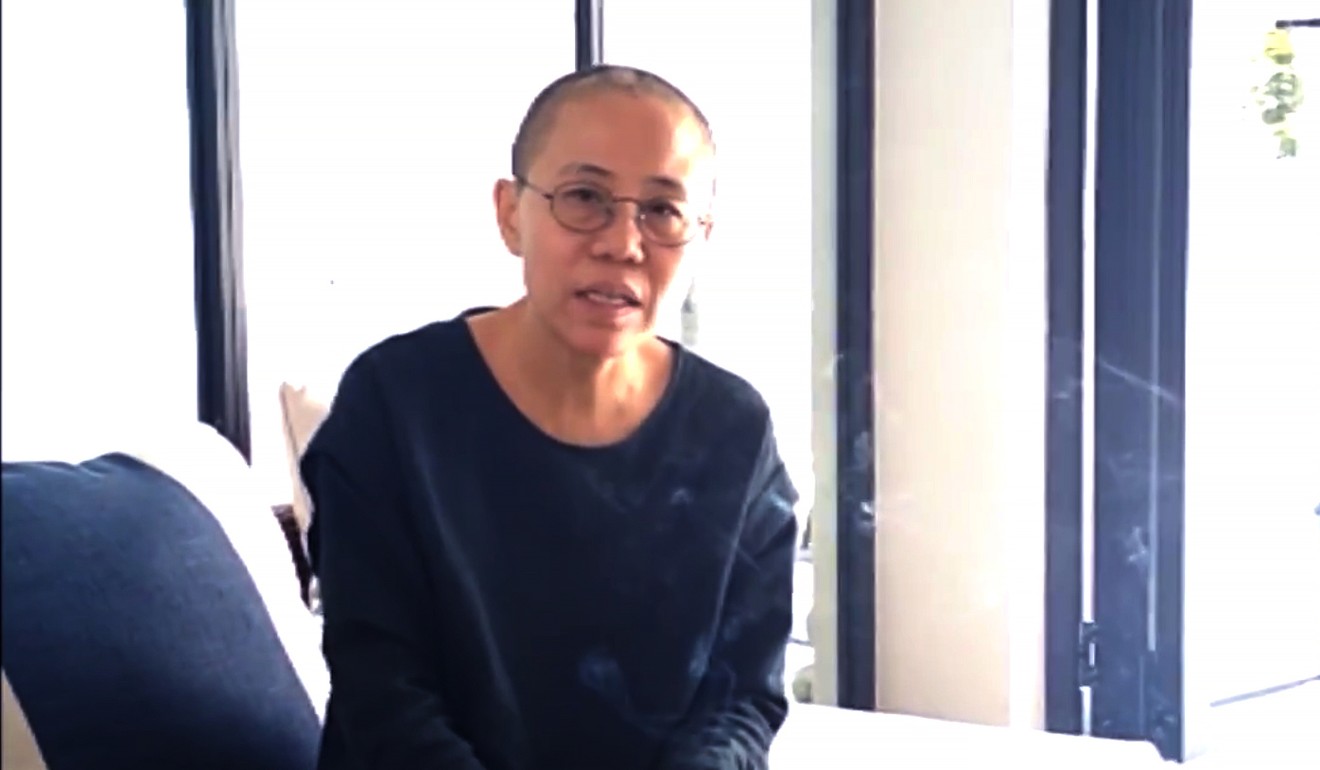
China, Germany vow to work together on driverless cars amid US protectionism
Chancellor Angela Merkel faces delicate balancing act during two-day trip to China as long-standing issues, including over human rights, remain
China and Germany on Thursday vowed to boost cooperation on driverless cars and were united in their opposition to US President Donald Trump’s protectionist trade policies, but they remain at odds over Beijing’s heavy-handed approach to human rights cases.
German Chancellor Angela Merkel faced a delicate balancing act as she began her two-day visit to China – a trip clouded by Trump’s trade threats that could harm German carmakers and his decision to withdraw from the Iran nuclear deal that may threaten security in Europe.
But as Trump’s isolationist path brings Beijing and Berlin closer, the long-standing issues remain – market access, China’s alleged practice of forced technology transfers and divide and conquer tactics among smaller European Union nations.

On the trade front, the two sides will sign a memorandum of understanding to work together on new auto technology, including self-driving cars, Merkel said at a joint press briefing with Chinese Premier Li Keqiang, adding that Germany wanted to ensure they had equal access to each other’s markets.
Li said China welcomed German manufacturers of autonomous vehicles to invest in the country, adding that Beijing had already lowered market entry requirements for new energy vehicles.

Merkel’s visit comes after the Trump administration launched a national security investigation into car imports that could lead to new US tariffs.
The EU and other American allies have also protested against US tariffs imposed on imported steel and aluminium in March, and Merkel on Thursday said she hoped Washington could exempt the EU from the tariffs for an unlimited period of time.
The US is the second-biggest export destination for German carmakers after China, and vehicles and car parts are Germany’s biggest source of export income.
Meanwhile China’s finance ministry, trying to win support amid the ongoing trade dispute with the US, on Tuesday announced plans to cut tariffs on some foreign vehicles to 15 per cent – down from as much as 25 per cent – starting on July 1.
Beijing is also lifting in phases its requirement that foreign companies manufacturing cars in China must form joint ventures with Chinese partners.
Merkel said she welcomed that move and other recent announcements that China would further open its financial sector to foreign participation, adding that she hoped “concrete progress” could be made on an investment treaty between China and the EU to show both sides’ commitment to free trade.

Germany has also been pushing for the release of Liu Xia, widow of Nobel Peace Prize winner Liu Xiaobo, who has been under house arrest since her husband was awarded the prize in 2010 – although she has never been charged with any crime.
Li said he had discussed human rights cases with Merkel during their meeting and that China was willing to have a dialogue with Germany on the matter this year “on the basis of mutual respect and equality”, without directly addressing Liu Xia’s situation.
“China respects actions taken in accordance with the law by judicial and law enforcement bodies,” Li said. “But we must also respect humanitarian principles.”
The Chinese premier also addressed German concerns over 16+1 – a grouping of 16 central and eastern European countries led by Beijing – saying that China supported a united and prosperous EU and did not coerce the bloc’s smaller members on their domestic and foreign policy decisions. Li also said China would improve the bloc’s transparency by inviting representatives from the EU to attend its meetings.
It is Merkel’s 11th trip to China since she became chancellor in 2005 and the first since she was re-elected for a fourth term, and will be followed by a joint government consultation in Berlin in July.
Merkel, who is visiting with an industry delegation of about 20 German executives, will on Thursday evening attend a dinner hosted by President Xi Jinping before heading to Shenzhen on Friday, where she will visit a Siemens facility and other sites.

